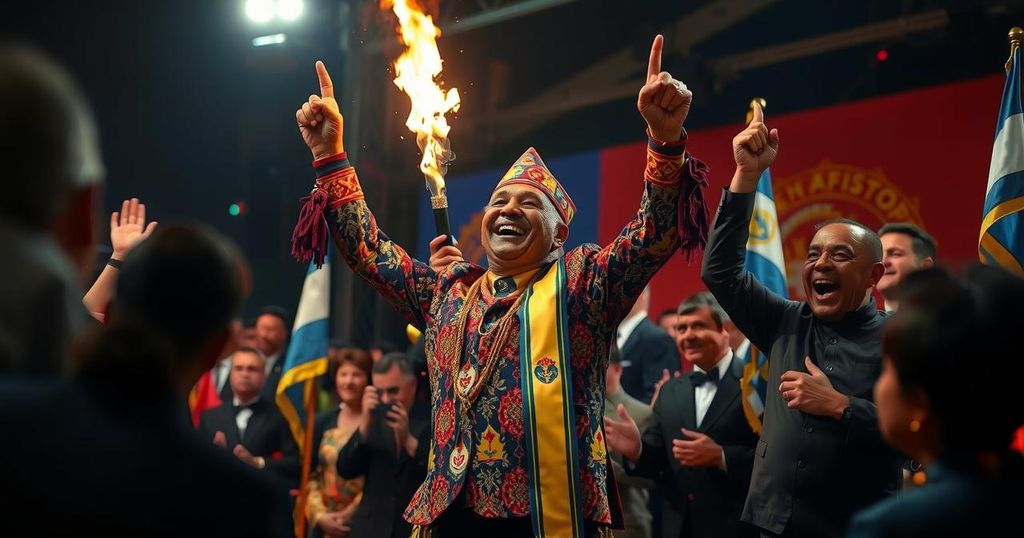Yamandu Orsi, the leftist candidate from Uruguay’s Broad Front, has claimed victory in the presidential run-off against Alvaro Delgado. His win, securing 49.8% of the vote, signifies a shift against the incumbent coalition, amidst a global wave of anti-incumbent sentiment. Orsi aims to promote national dialogue and address critical social issues, focusing on poverty and organized crime, while maintaining a moderate and inclusive approach to governance.
Yamandu Orsi, a leftist candidate and former mayor from Uruguay’s Broad Front coalition, has emerged victorious in a closely contested presidential run-off, successfully defeating incumbent Alvaro Delgado of the center-right governing coalition. His win represents a significant shift in the political landscape of Uruguay, signifying a rejection of the current administration amid a broader trend of anti-incumbent sentiment seen in global elections. Mr. Orsi garnered 49.8% of the vote, compared to Mr. Delgado’s 45.9%, with voter turnout reaching nearly 90%.
Mr. Orsi, 57, aims to unite the nation and prioritize social policies that address pressing issues, including childhood poverty, which currently affects 25% of the youth population. He has pledged to encourage national dialogue and build a more inclusive society. His victory can be attributed to a desire among voters for stability and a return to the progressive initiatives championed by previous Broad Front administrations, which oversaw significant social reforms and economic growth. Alvaro Delgado conceded defeat with dignity, acknowledging the mood of his supporters while affirming that they are not defeated.
The election results indicate a changing tide in Uruguay’s electoral dynamics, amid a backdrop of widespread dissatisfaction with ruling parties globally, particularly in light of post-pandemic economic challenges. In contrast to the prevailing populist trends elsewhere, Mr. Orsi’s moderate approach may foster continuity and stability rather than dramatic policy shifts. As a political heir to former President Jose Mujica, he aims to reinstate the Broad Front’s legacy of liberal, sustainable governance.
The recent election of Yamandu Orsi marks a pivotal moment in Uruguayan politics, as it signifies a noteworthy shift away from the center-right coalition that has governed since 2019. Historically, the Broad Front coalition has prioritized social equality and progressive reforms, transforming Uruguay into one of the region’s leading nations on environmental issues and social justice. Orsi’s candidacy is seen as a return to these policies as voters seek solutions to critical issues that have emerged in the aftermath of the global pandemic. The electoral climate reflects a growing discontent with the status quo, echoing sentiments observed in many nations facing similar economic challenges.
In conclusion, Yamandu Orsi’s triumph in the presidential run-off represents not only a significant political resurgence for Uruguay’s leftist Broad Front but also illustrates wider trends of voter dissatisfaction with incumbents across the globe. As Mr. Orsi prepares to take office, his commitment to dialogue and social reform will be crucial in addressing the country’s formidable challenges, including poverty and organized crime. This election underscores the strength of Uruguay’s democratic processes, highlighting the enduring importance of political engagement in times of economic uncertainty.
Original Source: www.expressandstar.com






